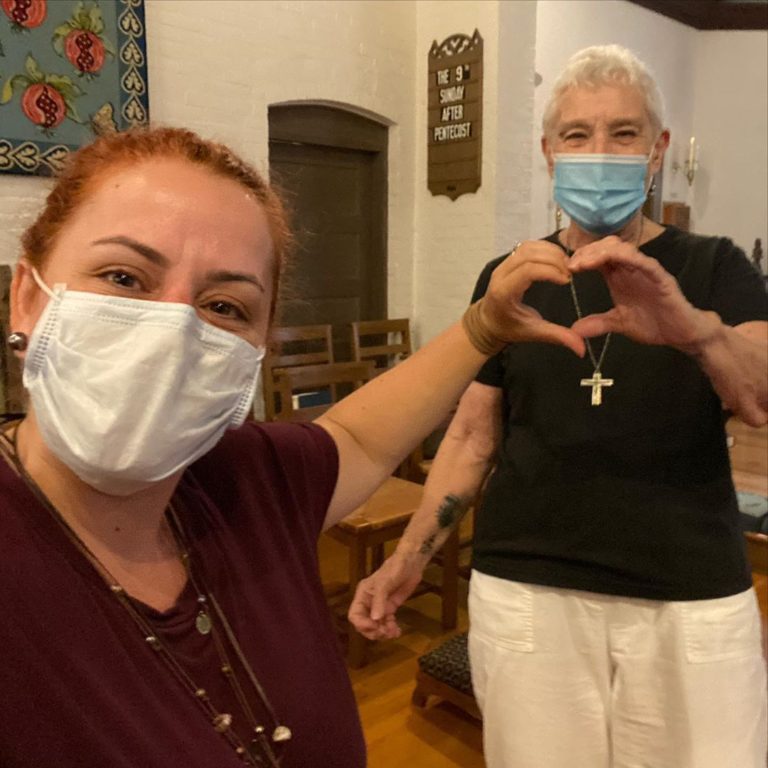Sending love from St. Andrew’s

Sending love from St. Andrew’s

Over the next couple of weeks, I’ll be offering short excerpts (and some personal thoughts) from Bishop Steven Charleston’s 2014 book, “Good News: A Scriptural Path to Reconciliation.” I believe, as do some other parishioners working together as part of a “Reconciliation Team,” that there are some important insights in this book that might benefit all of us as we go about working to remain united as a community of faith, Christ’s body in this world, as well as suggesting ways we may choose to be healers and unifiers in—and perhaps even of—society.
Continuing from the Introduction:
“The love Jesus calls us to has nothing to do with a right of judgment on our part. He tells us point blank: judge not. As the Lord, Jesus reserves judgment to God. God alone will weigh our sins and decide who among us has sinned more grievously than another. Since we are all in that same boat together, it is hypocritical for us to withdraw from another. In fact, it is contrary to the command of Jesus who told us to love one another as he loved us. And Jesus loved us all without ever putting us in a pecking order of sin.
“In the end, Jesus is clear that God values love over rightness, compassion over judgment. This leads us with the fundamental question: how do we love one another as Jesus loved us when we disagree? We follow his example. We imitate Christ.”
[My questions for you today: Do you agree with Charleston that it is hypocritical for us to withdraw from one another when we disagree? That it is contrary to Jesus’ command that we love one another as he loved us?]
May we all share the in the great joys of our common Resurrection life,
Father Chip+
Over the next couple of weeks, I’ll be offering short excerpts (and some personal thoughts) from Bishop Steven Charleston’s 2014 book, “Good News: A Scriptural Path to Reconciliation.” I believe, as do some other parishioners working together as part of a “Reconciliation Team,” that there are some important insights in this book that might benefit all of us as we go about working to remain united as a community of faith, Christ’s body in this world, as well as suggesting ways we may choose to be healers and unifiers in—and perhaps even of—society.
Continuing from the Introduction:
“One of the shorthand phrases that is often popular when Christians disagree about human behavior is ‘hate the sin, love the sinner.’ While on the surface, this phrase seems like a charitable expression, it masks a deeper, implied judgment. The phrase begins on the assumption that we can judge what is sinful. In that way, it gives us the right to judge others and still claim to love them.
“But isn’t sin real? Don’t we believe that some human behaviors are sinful and contrary to the will of God?
“Absolutely. In fact, people engage in behaviors that are sins. Some seem very clear to us (lying, cheating, murdering) while others are contentious among us (abortion, homosexuality, ‘just war’). The fracture lines in communities of faith begin to form when people either do not agree about whether a particular behavior is sinful, or when they seek to elevate one particular sin as being of special, more sinful, importance.
“Reconciliation does not mean that we stop believing in sin. It says, that we must stop pretending that another person’s sin is different from our own. Reconciliation calls us to stop setting ourselves apart and acting as the judge and jury for sinners.”
[My questions for you today: Charleston writes that “we must stop pretending that another person’s sin is different from our own.” Is it indeed possible to learn to put our differences aside in order to establish, or restore, a meaningful relationship with someone? Is it worth it?]
May we all share the in the great joys of our common Resurrection life,
Father Chip+